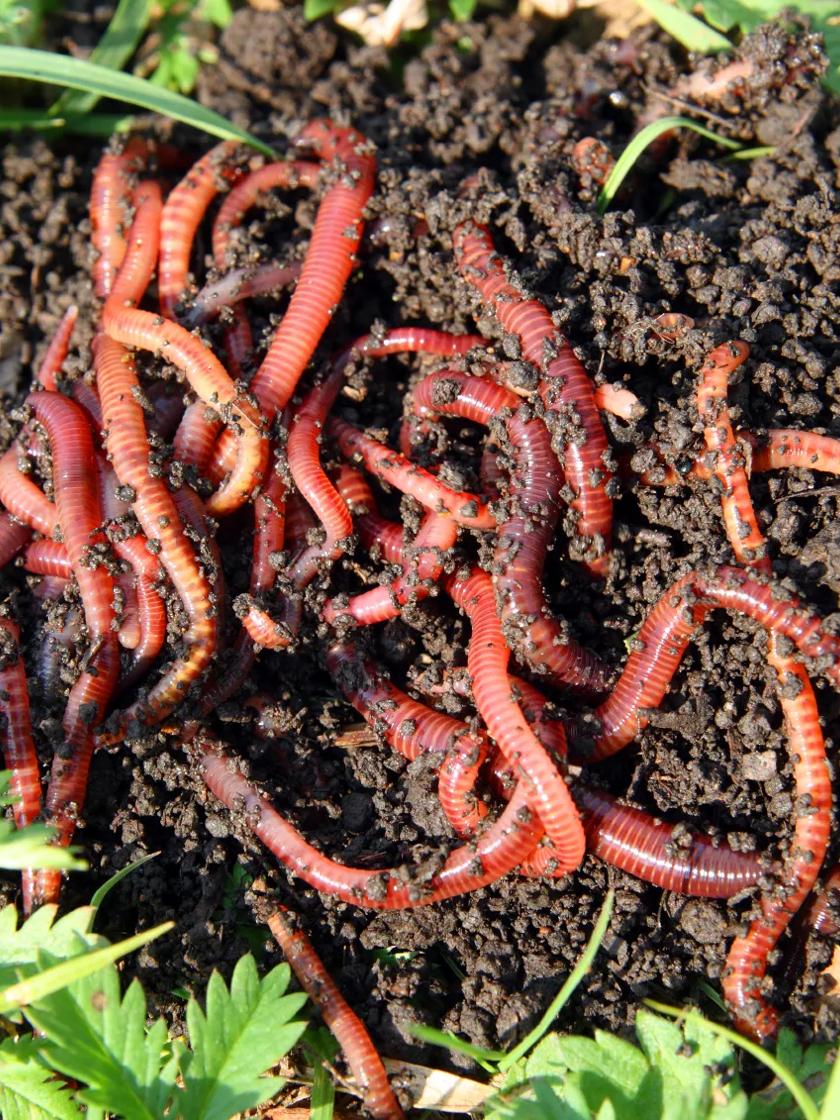Use Lake Hickory Bait for Remarkable Lawn Health and Gorgeous Greens
Use Lake Hickory Bait for Remarkable Lawn Health and Gorgeous Greens
Blog Article
How Red Wigglers Can Change Your Composting Experience
The combination of red wigglers into composting techniques offers a transformative method to throw away management and soil enrichment. These microorganisms not just accelerate the decay procedure yet additionally create nutrient-dense vermicompost that boosts dirt health and fertility. Their versatility to numerous environments makes them an ideal option for both beginner and seasoned composters alike. Understanding the specific requirements and advantages associated with maintaining a flourishing worm population is vital for maximizing their possibility. What strategies can one employ to guarantee a successful vermicomposting experience?
Benefits of Red Wigglers
Red wigglers, scientifically referred to as Eisenia fetida, are a cornerstone of effective composting systems due to their remarkable capacity to decay raw material effectively. These worms stand out in transforming cooking area scraps, backyard waste, and other organic products right into nutrient-rich garden compost, typically referred to as worm spreadings. Lake Hickory Bait. This procedure not only minimizes landfill waste but likewise adds to sustainable gardening practices
Among the key benefits of red wigglers is their high recreation rate, allowing them to occupy a composting atmosphere promptly. This fast reproduction enhances disintegration prices, resulting in faster garden compost manufacturing. In addition, red wigglers grow in a varied variety of conditions, making them versatile to various composting setups.

Establishing Up Your Worm Bin
(Hickory NC Worms For Sale)To develop an effective worm bin for composting, cautious interest should be offered to its style and setting. An ideal worm container must be constructed of materials that are sturdy yet permit for needed airflow, such as plastic or wood. The dimension of the container can vary, yet a volume of about 1 square foot per extra pound of worms is a good starting factor.
Ensure that the container has drain openings to prevent water buildup, which can lead to anaerobic problems detrimental to the worms. Furthermore, integrating ventilation openings will certainly assist preserve correct humidity degrees and oxygen flow.
Next, it is essential to give bed linen for the worms, which can consist of shredded newspaper, cardboard, or coconut coir. This bedding not just offers a habitat for the worms yet additionally aids in wetness retention.
Placement the worm container in an area that preserves a temperature level variety of 55-77 ° F(13-25 ° C) to optimize worm task. Avoid placing the bin in straight sunlight or severe temperatures. By adhering to these guidelines, you can develop a favorable atmosphere for red wigglers, enhancing the efficiency of your composting process.
What to Feed Your Worms

(Red Wiggler Express)Red wigglers specifically take pleasure in soft, wet foods like watermelon peels, cucumber peels, and banana peels. However, it is critical to stay clear of feeding them citrus fruits, onions, and garlic, as these can be destructive to their health. Furthermore, prepared foods, dairy products, and meat must be strictly avoided, as they can lead to odors and attract pests.
Giving a regular feeding timetable will help maintain your worm populace flourishing while enhancing the overall effectiveness of your composting initiatives. By understanding what to feed your worms, you lay the groundwork for an effective and sustainable composting experience.
Keeping a Healthy And Balanced Habitat
Developing a prospering composting atmosphere for red wigglers requires focus to their environment, as it directly influences their wellness and performance. The perfect habitat must keep a well balanced moisture degree, typically between 60-70%. Extreme wetness can lead to anaerobic conditions, while insufficient moisture might dry out the worms.

The bed linen material in the garden compost ought to be varied and shredded, including materials like cardboard, newspaper, and coconut coir. This not only provides a comfortable environment however additionally acts as a food resource. Lake Hickory Bait. Consistently looking for smells or indications of parasites can aid identify possible problems before they escalate
Last but not least, preserving a well balanced pH degree, ideally between 6 and 7, ensures a favorable habitat for red wigglers, promoting their capacity to procedure organic issue effectively. By resolving these factors, you can produce a lasting and productive composting ecosystem.
Harvesting and Using Garden Compost
Gathering compost from a worm bin is a fulfilling process that changes natural waste right into nutrient-rich product for gardens and plants. When the composting cycle is full, commonly after 8-12 weeks, it's time to collect the vermicompost. The very first action includes separating the red wigglers from the ended up compost. This can be done making use of approaches such as the "light" approach, where worms are attracted to light and can be scooped away from the top layers, or by moving the compost to one side of the bin and including fresh bedding to the opposite side, motivating the worms to move.
As soon as the worms are eliminated, the staying compost can be sifted to get rid of any kind of bigger fragments or undecomposed material. The end product should have a dark, brittle structure and a pleasurable earthy scent, indicating that it is all set for use. This rich garden compost can be used straight to garden beds, mixed right into potting dirt, or utilized as a top dressing for potted plants. By integrating vermicompost right into your horticulture practices, you not only improve soil fertility yet additionally promote healthy plant growth and sustainable horticulture methods.
Conclusion
Integrating red wigglers right into composting methods significantly boosts the decay procedure and contributes to the manufacturing of nutrient-rich vermicompost. The resulting worm castings boost soil structure, fertility, and microbial task, ultimately promoting much healthier plant growth.
Report this page